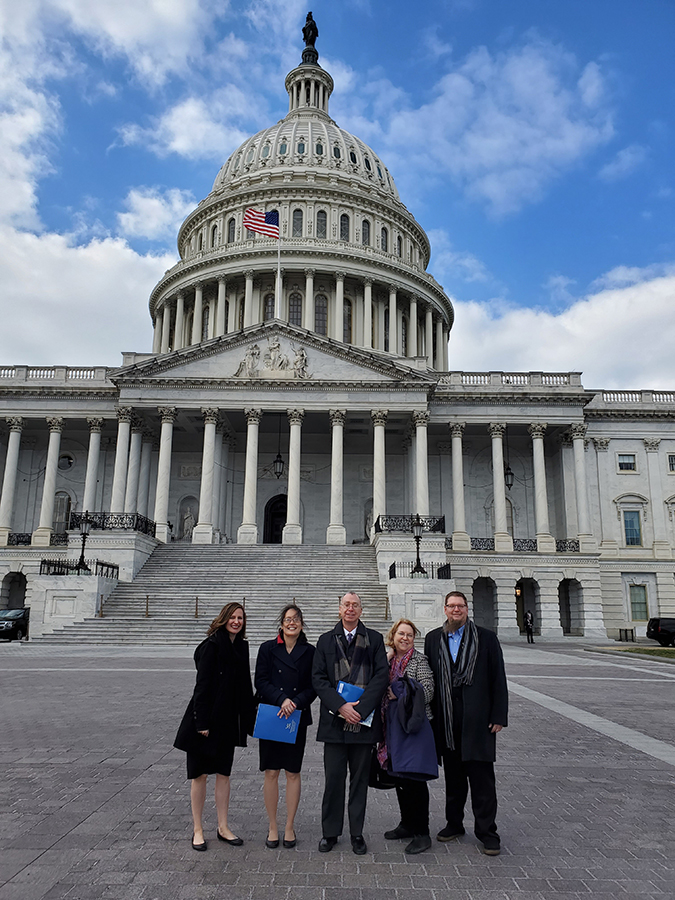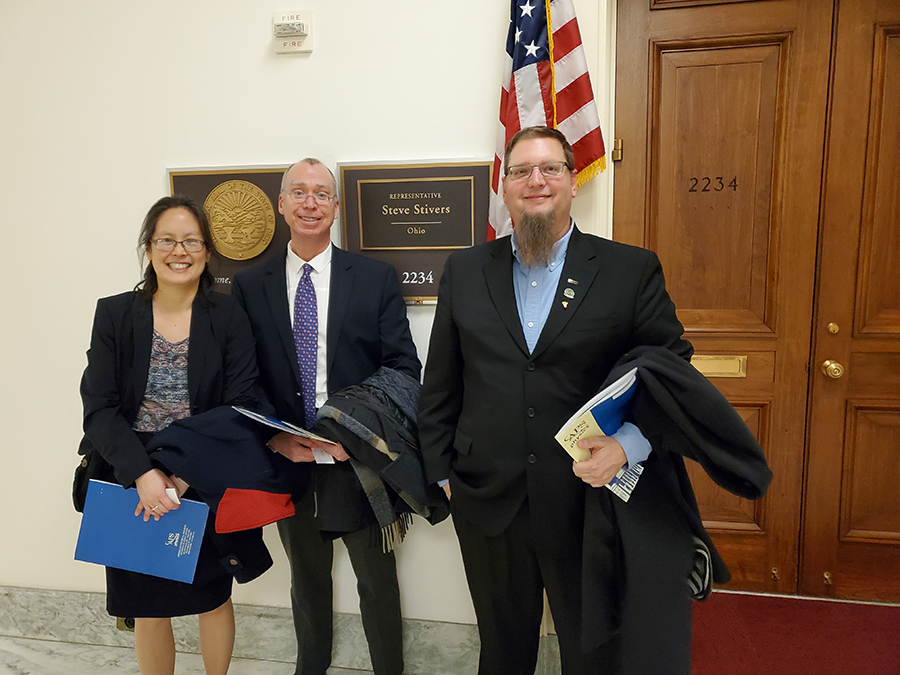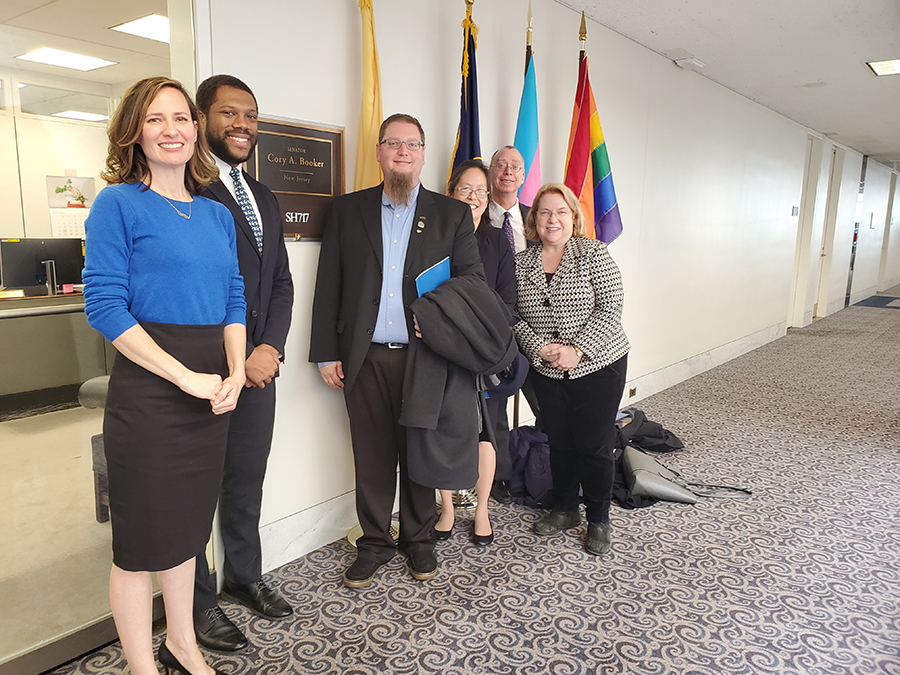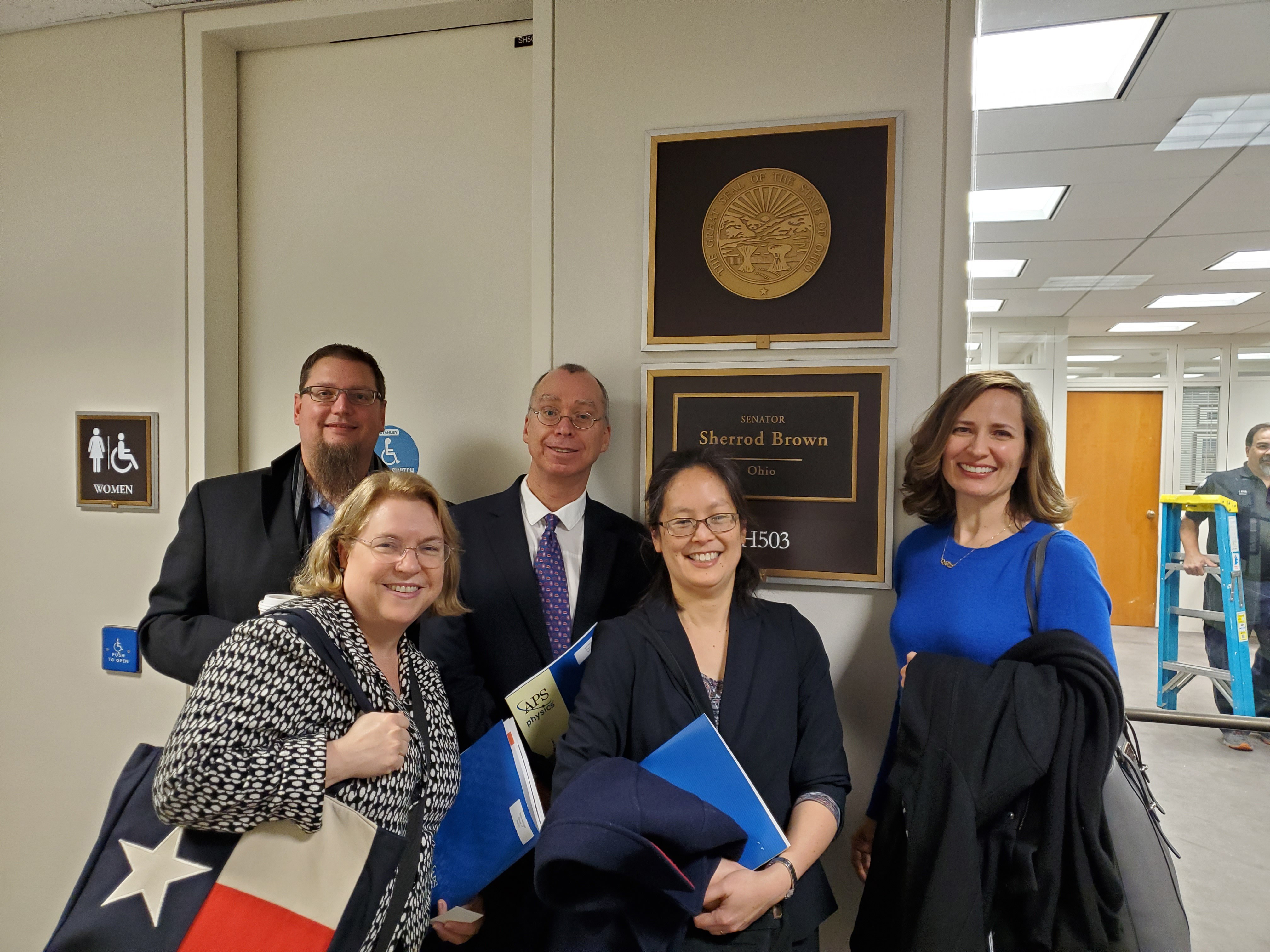College of Arts and Sciences Newsroom
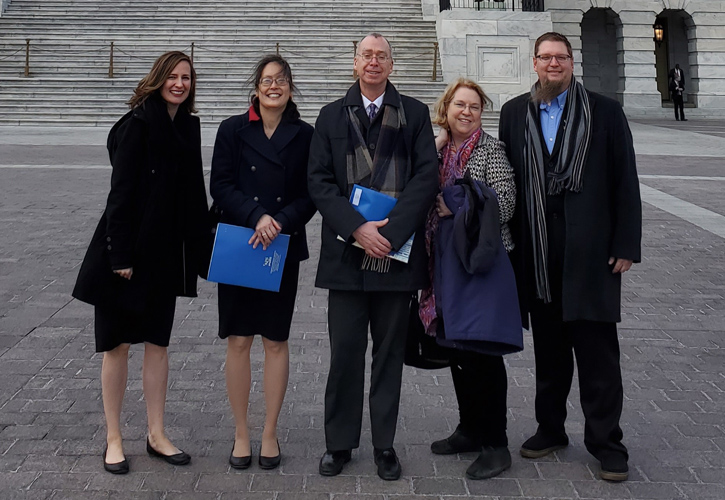
University of Dayton physicist lobbies for STEM-related issues in Washington, D.C.
By Ashley Junkunc ’21
University of Dayton physicist Jay Mathews first fell in love with physics because of its ability to challenge and stimulate the brain. Today, that passion drives him to advocate for legislative change on behalf of the sciences as a member of the American Physical Society.
In January, Mathews visited the offices of U.S. senators and representatives from Ohio and New Jersey in Washington, D.C., to lobby for issues important to science and engineering, national security and the health of our nation and planet. Mathews, associate professor of physics, serves as vice chair of the Ohio Region Section of the American Physical Society (APS). This was the third year he participated in the APS Congressional Visits Day, which brings unit leaders to Capitol Hill to meet with congressional representatives from across the country to advocate for support of science.
“All of the professional societies in STEM do visit days like this, and it's a great way for scientists and engineers to get involved in helping to shape government policy and help create a stronger voice for STEM,” Mathews said.
This year, Mathews and his APS colleagues visited the offices of Sen. Sherrod Brown (D-OH), Sen. Rob Portman (R-OH), Sen. Cory Booker (D-NJ), Rep. Mike Turner (R-Dayton), Rep. Steve Stivers (R-Upper Arlington), Rep. Jim Jordan (R-Urbana) and Rep. Bonnie Watson Coleman (D-NJ).
The delegation met with congressional science and technology staff and presented on issues that included increasing funding for basic science research; maintaining the National Helium Reserve; preserving federal methane emission regulations; combating sexual harassment in the sciences; and supporting the Keep STEM Talent Act of 2019, which attempts to address how visas are issued for international students pursuing advanced degrees in science, technology, engineering and mathematics in the U.S.
Past visits have proved successful, resulting in co-sponsorship by Sen. Chris Van Hollen (D-MD) and Sen. Dianne Feinstein (D-CA) for the Sexual Harassment in the Sciences Act of 2019 — a previous year’s lobbying effort that was passed by the U.S. House of Representatives. In addition, Rep. Jim Himes (D-CT) and Van Hollen (D-MD) agreed to co-sponsor legislation that would allow easier pathways for international students to study in the United States and obtain permanent residency.
“Our advocacy efforts are bearing fruit,” Mathews said. “Talking to these people works.”
The American Physical Society is a nonprofit membership organization that welcomes students and professionals to advocate for their industry through research journals, scientific meetings, education, outreach and international activities. Mathews joined the professional group in 2006 at the encouragement of his undergraduate research mentor. As vice chair of the Ohio Region Section, he focuses outreach efforts in recruiting new members, student presenters and faculty attendance.
Mathews provides his students with opportunities to present research at the Ohio region’s biannual meetings. He said this allows students to get a feel for what it's like to be a scientist, while providing a low stakes environment for public speaking, and a forum to meet new people that can impact students’ post-graduate and professional careers.
“Being a part of and experiencing these professional organizations help develop your network, find a job, explore careers, find scholarships and internships, increase involvement in policy and stimulate education,” Mathews said.
Mathews highlights his advocacy efforts during classes with graduate and undergraduate students to prompt broader conversations about the impact of issues related to science research.
In September, Mathews was honored with the Optical Society’s 2019 Diversity and Inclusion Advocacy Recognition award for encouraging and fostering diversity, and providing opportunities for underserved students in the field of optics and photonics.
John Erdei, associate professor and Department of Physics chair, applauds Mathews’ national reputation and his impactful representation of the University at APS events.
“Knowing Jay, I am confident his contributions were valuable, insightful and had an impact on the participants,” Erdei said. “Jay’s experience at the Congressional Visits Day certainly can be carried back to the classroom, providing students with a perspective that goes beyond what can be obtained from a physics textbook.”
After pursuing his musical ambitions as a teenager and throughout his early 20s, Mathews’ pursuit of physics came with his decision to go back to school. He studied physics and math as an undergraduate and received his doctorate in physics from Arizona State University.
Mathews joined the University of Dayton faculty in 2013 and also serves as a faculty advisor for the University’s chapter of the Society of Physics Students and Sigma Pi Sigma, the physics honor society. He is thankful for these opportunities and the ability to encourage change at a national level.
“I’m really glad I participated in the APS Congressional Visit, and I am going to continue to do it as much as I can,” Mathews said. “I come away every time a little more hopeful.”
For more information, visit the Department of Physics website.

